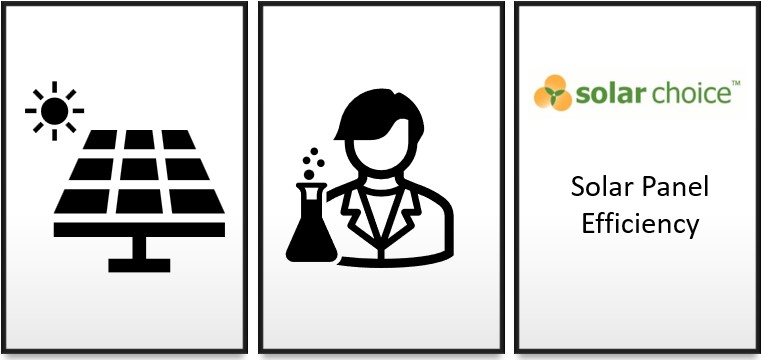Once you have decided to install a residential solar system to power your home, and maybe even your electric car, you have a few other important decisions to make.
Top of the list is deciding which solar panels you will choose to install. The purchase cost of the solar panels is the single largest component of your entire solar system investment, and your choice of panel has the largest impact on the performance and payback period of your system.
Purchasing any technology involves making a range of trade-offs around performance, cost, expected life and warranty to name a few. In the case of solar panels, one of the most important factors to consider is the efficiency of the solar panel, or its ability to harness the power of the sun.
The sheer number of solar panel brands and products, the various competing solar cell technologies, along with manufacturer claims about the efficiency of their solar panels, makes the decision more complicated.
Let’s take a look at what drives solar panel efficiency, and how important it is to the performance of your residential solar system.
What is solar panel efficiency and how is it measured?
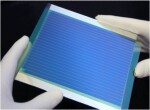 In simple terms, solar panel efficiency measures how much of the sunlight that hits the surface of a solar panel is converted into usable electricity, expressed as a percentage.
In simple terms, solar panel efficiency measures how much of the sunlight that hits the surface of a solar panel is converted into usable electricity, expressed as a percentage.
According to the National Renewable Energy Laboratory in the United States, today’s solar panels have efficiencies of between 16% and 22%, with an average efficiency rating of 19.2%,
The two most important features of solar panels that contribute to efficiency are the maximum power output of the panel (measured in Watts or W) and the total panel area measured in metres squared.
Standard test conditions are used to determine overall solar panel efficiency, to control for environmental factors such as temperature, irradiance and air mass. This ensures an ‘apples to apples’ comparison for panel efficiency.
In the case of a solar panel with 20% efficiency, 20% of the solar energy within the sunlight that hits the panel will be converted into usable electricity.
While these efficiency figures may seem, well, inefficient, solar panel technology has come a long way since it was first invented, and it continues to improve. Back in 1954, the first solar panels had an efficiency rating of just 6%, and as recently as 10 years ago, that figure had reached 13.4%.
As technology marches forward and continues to improve, new advancements promise to add to the efficiency of solar panels.
Compare solar quotes from up to 7 local installers now.
Why is solar panel efficiency important?
The more efficient a solar panel is, the more of the sun’s energy it can harness to power your home, and the more electricity it will generate over the life of the system.
Plus, in practical terms, this means that to achieve the target energy output of your solar system based on your electricity usage, fewer panels are needed. And fewer panels means less roof space is needed to house them.
High efficiency solar panels also offer a faster payback period. This includes the return on investment (ROI), or how fast the upfront cost of the system is repaid. Another measure of payback is how fast the solar panel pays back (or produces) the embodied energy in the panel which is the energy used to extract the raw materials and manufacture the panel in the first place.
Even allowing for degradation, which affects all solar panels and means their ability to transform sunlight into power declines over time, purchasing the most efficient solar panels you can means they will perform better over time than less efficient panels.
Consider also if you live in an area with less sunlight, or if the orientation of your roof is not ideal for solar capture. In these cases, purchasing more efficient solar panels will ensure more electricity is generated in less than ideal conditions.
Other factors that affect solar panel efficiency
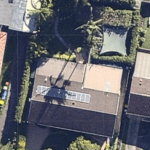 It is important to understand that the potential or maximum efficiency of a solar panel will be impacted by outside factors that come into play once a panel is installed on a roof.
It is important to understand that the potential or maximum efficiency of a solar panel will be impacted by outside factors that come into play once a panel is installed on a roof.
Overall solar system efficiency, irrespective of the actual efficiency of an individual solar panel, is affected by a range of environmental factors. The main ones are:
- Irradiance
- Shading
- Panel orientation
- Temperature (higher temperatures are not necessarily better)
- Location (latitude)
- Time of year
- Dust and dirt
What are the most efficient solar panels available in Australia?
As part of our recent review of the best solar panels in Australia for 2022, one of the criteria we looked at was solar panel efficiency. Here, in order, are the highest efficiency solar panels available in 2022:
Solar Panel |
Image |
Efficiency Rating |
| Sunpower Maxeon 5 | 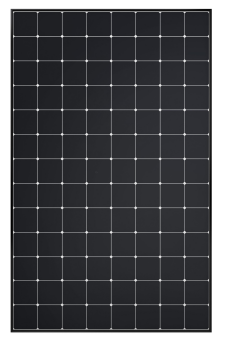 |
Up to 22.5% |
| REC Alpha Pure Series | 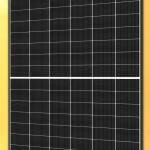 |
Up to 22.2% |
| LG Neon R | 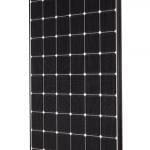 |
Up to 22.00% |
| Jinko Tiger N Type | 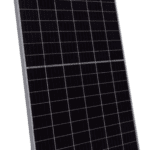 |
Up to 21.22% |
| Hyundai VG Series | 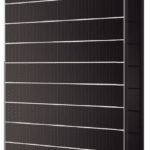 |
Up to 20.9% |
| Solarwatt Vision Pure | 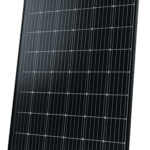 |
Up to 20.2% |
| Q-Cells Q.Peak DUO G9+ | 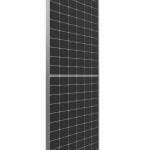 |
Up to 20.8% |
| Longi Hi-MO4 | 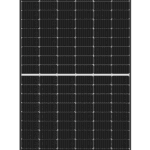 |
Up to 21.1% |
| Winaico Gemini | 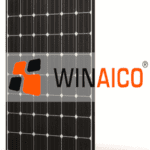 |
Up to 20.34% |
| Phono Twin Plus | 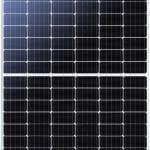 |
Up to 20.17% |
Compare solar quotes from up to 7 local installers now.
What else matters beyond solar panel efficiency?
The list above is a good guide to high efficiency solar panels currently available in Australia, if panel efficiency is the most important factor in your purchase decision.
As our review noted, there are a number of other factors you might want to consider alongside panel efficiency when deciding what solar panels to purchase for your residential solar system.
Warranty: Solar panels are expensive and have a long expected life, so the warranty offered is very important. Manufacturers offer a performance warranty that guarantees a minimum percentage power output right to the end of its expected life (typically 25 years).
The product warranty covers defects in the manufacturing process and is typically for a period of 10 years. When it comes to both types of warranty, it pays to check the details so you can be confident you will get what you have paid for.
Bloomberg Tier 1: This is a ranking unrelated to the product quality or performance of solar panels, and instead considers the financial strength and viability of solar panel manufacturers.
Financial strength, or bankability, is a useful measure considering the length of performance warranties and helps to identify the brands that are more likely to remain operating for a long time.
Degradation rate: How fast a solar panel degrades directly affects its ability to turn solar power into useable electricity. The performance warranty offered by solar panel manufacturers shows the worst case degradation rate over the life of the panel as expressed in its end-of-life efficiency.
Temperature coefficient: This indicates how much the output of a solar panel will be reduced once the temperature goes above or below the optimal range. If you are in an area that experiences any extreme temperatures, the temperature coefficient needs to be considered in your choice of solar panel.
Cost: Last but definitely not least is the cost of solar panels. As mentioned previously, the cost of solar panels is the largest component of a residential solar system budget, and typically more efficient solar panels cost more per panel to purchase.
Solar panel efficiency matters, in context
When you decide to purchase a residential solar system, you will be faced with myriad decisions to select the best solar panels for your needs. Power output and panel size help you understand how a system will meet your electricity needs and fit on your available roof space, but solar panel efficiency will tell you exactly how much of the sun’s power your system can harness and turn into electricity.
You will need less high efficiency solar panels, and more low efficiency solar panels, to generate the same amount of electricity. So even if the higher efficiency panels cost a bit more, you may save overall on the cost of your solar system.
As always, it pays to do your research and ensure you can make valid comparisons to make the best possible purchase decision.
- Most Efficient Solar Panels in Australia - 3 May, 2022
- 10 Greenest Energy Providers in Australia - 3 March, 2022
- Solar Pool Pumps: Costs, Options and Benefits Explained - 1 November, 2021
